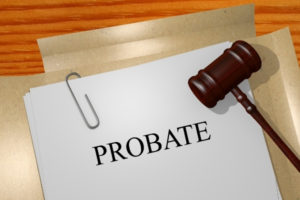Knowledgeable Long Island Probate Attorney Ready To Serve You
Understanding Probate and Estate Administration

If someone you care about passed away in Long Island or the New York City area, I can guide you through probate and the entire estate administration process as your Long Island probate lawyer. Whether you have been named as an Executor or beneficiary in a Will or your loved one did not have a Last Will & Testament, the process can be difficult and time-consuming.
The highly-skilled Long Island probate attorneys at the Law Office of Andrew M. Lamkin, P.C. can help you obtain an appointment as the Executor, settle debts, distribute assets, and explain all of your legal rights. Contact us today.
Probate is the process of legally establishing the validity of a Will in Surrogate’s Court. Where there is no will, the process is called Administration and can be much more difficult because the Court does not have the guidance of a Last Will & Testament, where the decedent stated their wishes. Therefore, an Administrator must distribute the assets according to New York intestacy laws. Hiring a skilled Long Island probate lawyer makes the process run much smoother.
Basic Information You Need to Know
Executor or Administrator
Both of these terms refer to the person who is responsible for making payments of debts, paying taxes, and distributing assets to beneficiaries. If your loved one passed away with a will, you may have been named the executor. If there is no will, the Surrogate’s Court will assign an administrator (typically a close family member).
Estate Taxes
Taxes imposed on the estates of individuals at the time of their passing. The New York State limit is currently one million dollars, meaning every estate in excess of one million dollars must pay a tax. The executor is responsible for paying the tax out of the proceeds of the estate. The tax must be paid within nine months of the date of death of the individual. Therefore, it is important to begin work quickly. Reach out to our Long Island probate attorney to discuss your situation.
Letter of Testamentary or Letter of Administration
The document provided by the Surrogates Court in the County where the decedent lived. The document is a “certificate” which appoints an individual to be “executor” or “administrator” and allows that person to administer the estate, including conducting such functions as settling debts with creditors, paying estate taxes, selling assets, and distributing inheritance to the proper beneficiaries.
Real Property

This is simply another term for real estate. If the deceased owned property in multiple states, you will need to go through the probate process in each of those states (extending the entire process to be in excess of a year).
The probate and estate administration process can be complex and time-consuming. As a skillful probate legal practitioner in Long Island, I will help you understand the issues you need to deal with and complete the process as quickly and cost-effectively as possible.
Contact a Long Island Probate Lawyer
Our experienced legal practitioner also handles other types of cases, including:
- Elder legal matters
- Estate planning matters
- Medicaid cases
- Trusts and wills matters
- Estate litigation cases
- Special needs matters
- Advanced directives
Speak with an experienced Long Island probate attorney today. Contact attorney Andrew Lamkin of the Law Office Of Andrew Lamkin P.C. today to schedule an appointment with a trusted and proven Long Island probate law firm. I am available to meet with you at your home or at my office.
Frequently Asked Questions (FAQ) Answers – Probate New York
How Much Does a New York Estate Have to Be Worth to Go to Probate?
In New York, an estate generally needs assets valued at $50,000 or more to require probate. Importantly, this threshold set by the Surrogate’s Court in New York does not apply to all assets. Generally, only assets held solely in the deceased’s name count toward probate assets. In other words, jointly owned property or assets with designated beneficiaries (e.g., life insurance policies or retirement accounts) are not included in that calculation. For example, jointly owned property, such as a house owned by spouses, will bypass the probate process and go directly to the surviving spouse or owner.
If the estate is valued under $50,000 in New York, it may still be subject to New York probate proceedings but through a process known as a small estate proceeding. When the decedent leaves no will, the estate is administered, not probated. Understanding these distinctions and what might apply in your situation can be complicated and complex. A seasoned probate lawyer can help answer your questions and assist you.
How Long Do You Have to File a Probate After Death in New York?
One of the most common questions is, How long do you have to file a probate after death in New York? Unlike other states, New York does not have a hard and fast official deadline to probate a will. However, it should be done as soon as possible.
A delay in filing for probate can create an array of problems, including:
- Delaying beneficiaries from receiving their inheritance,
- Unnecessary fees and expenses,
- Additional paperwork (e.g., affidavit explaining reason for delay) and
- The estate’s value may depreciate.
A delay in applying for probate can also inhibit creditors from seeking debt owed.
Is a Probate Lawyer the Same as an Estate Lawyer?
You may often hear the terms probate and estate lawyer used interchangeably, and while they both practice in similar areas of law, there are differences.
Probate lawyers handle the probate process after someone dies. In other words, they assist an executor or administrator in administering the estate. Often, a probate lawyer will serve their client in an advisory capacity and help oversee the process. Other times, these attorneys will need to take a more active role depending on the circumstances (i.e., whether there is a will, whether it is contested, guardianship, etc.)
An estate attorney often assists clients before their death. Estate lawyers help people plan their estates and affairs to ensure a smooth transition of assets after their death.
Estate attorneys ensure their clients have documented their wishes to be precisely carried out after their death, including through wills, trusts, and life estates. Estate lawyers will also advise their clients about possible inheritance taxes and costs and how that might affect their beneficiaries after death.
Typically, a New York estate lawyer will help living clients with estate planning, and probate lawyers handle conflicts that arise after someone’s death.
